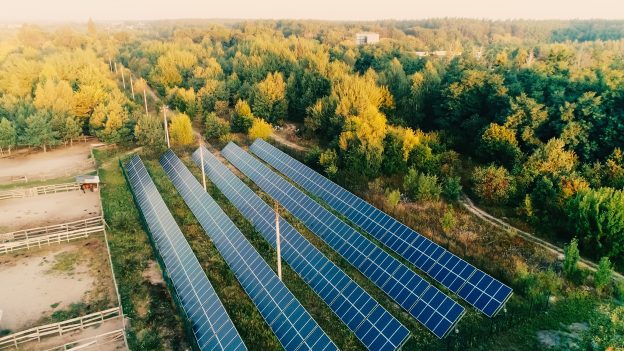Polysilicon:
Polysilicon prices have gone down further throughout the week. The mainstream concluded price for mono recharge polysilicon is RMB 45/KG, while mono dense polysilicon is priced at RMB 43/KG and N-type polysilicon is currently priced at RMB 48/KG.
This week, there has been a slight uptick in orders compared to last week, reflecting the transaction dynamics. In the short term, polysilicon prices are experiencing significant fluctuations, leading ingot manufacturers to scale back their production plans. Consequently, downstream sectors are exercising greater caution in their polysilicon purchases. With a prevailing pessimistic outlook on future polysilicon prices, buyers are only procuring polysilicon as per their immediate needs, aiming to mitigate potential losses from inventory buildup.
On the supply side, polysilicon prices have seen a sharp decline, with n-type polysilicon pricing dropping below CNY 50,000 per ton, averaging at CNY 48,000 per ton. Furthermore, there is an oversupply of p-type polysilicon, with the price of p-type dense polysilicon falling to CNY 43,000 per ton.
Regarding customer demand, wafer manufacturers are primarily focused on depleting their existing inventory. Meanwhile, as polysilicon prices continue to decrease, ingot manufacturers are increasingly hesitant to procure new material, opting instead to monitor market trends closely.
In summary, polysilicon prices have further declined this week, nearing the cash cost for some manufacturers. However, with new capacity expected to come online in the second and third quarters, the supply-demand balance may become more skewed. Anticipating continued price fluctuations, it's projected that the polysilicon sector will witness capacity reductions in the latter half of 2024.
Wafer:
The prices of wafer have diverged throughout the week. The mainstream concluded price for M10 P-type wafer is RMB 1.60/Pc, while G12 P-type wafer is priced at RMB 2.10/Pc. The mainstream concluded price for M10 N-type wafer is RMB 1.55/Pc and G12 N-type is priced at RMB 2.30/Pc.
Let’s delve into the supply and demand dynamics within the wafer sector. Ingot manufacturers persist in reducing their production, yet the depletion of wafer inventory is occurring at a sluggish pace. Consequently, an excess supply of wafers is anticipated to linger throughout April. Regarding wafer inventory composition, n-type wafers constitute over 85%, indicating that it will take time to exhaust this inventory. Presently, both n-type and p-type wafer prices remain below manufacturers' cash costs, providing a firm support level for their prices. As such, it's anticipated that prices of n-type wafers will stabilize at their current low levels. However, if polysilicon prices continue their downward trend, there remains a likelihood of further decreases in wafer prices. Moreover, the accumulation of cell inventory may result in reduced future demand for wafers from cell manufacturers.
In summary, while n-type wafer prices are expected to remain relatively stable for the time being, the downward trajectory of p-type wafer prices is likely to persist due to subdued demand. Expect ongoing negotiations regarding future wafer prices amidst these market conditions.
Cell:
Cell prices have been on different situations this week. The mainstream concluded price for M10 cell is RMB 0.340/W, while G12 cell is priced at RMB 0.360/W. The price of M10 mono TOPCon cell is RMB 0.40/W, while that of G12 mono TOPCon cell is RMB 0.43/W.
Regarding supply and demand dynamics, production plans for n-type cells continue to expand, leading to expected fluctuations in downstream sector operating rates and a gradual increase in cell inventory. However, inventory turnover remains at approximately one week, with 182mm cells showing more pronounced inventory issues. Conversely, 210mm cell prices have experienced a slight increase due to heightened short-term demand.
This week, the average price of G12 p-type cells decreased to 0.36 yuan/W. Following the second quarter of 2024, the gradual introduction of rectangular module capacity will lead to a larger market share for rectangular cells, particularly represented by the 210R variant. Moreover, this week, certain leading manufacturers have introduced a significant quantity of 182N cells into the market, exerting downward pressure on their prices, resulting in an average price decline to 0.40 yuan/W.
Looking ahead, cell inventory is expected to continue accumulating. Combined with the decreasing prices of raw materials, cell prices currently exhibit instability, leaving room for further declines in price.
Module:
Solar module prices have remained stable throughout the week. The mainstream concluded price for 182mm facial mono PERC module is RMB 0.86/W, 210mm facial mono PERC module is priced at RMB 0.88/W, 182mm bifacial glass PERC module at RMB 0.88/W, and 210mm bifacial glass PERC module at RMB 1.13/W.
Let’s assess the supply and demand dynamics in the solar module sector. Initially, there’s a slight uptick in module production, while upstream raw material prices continue their downward trend, exerting increased pressure on downstream sector prices. Recently, bid prices for modules have further decreased, with median prices dropping by one to two cents per watt. Currently, in an industry characterized by surplus capacity and imbalanced supply and demand, module manufacturers are keen to boost shipments. Consequently, some manufacturers have once again lowered their prices to stimulate higher sales volumes.
This week, solar module prices have remained stable, but there’s still a risk of future negotiations regarding solar module prices amidst the prevailing market conditions.







